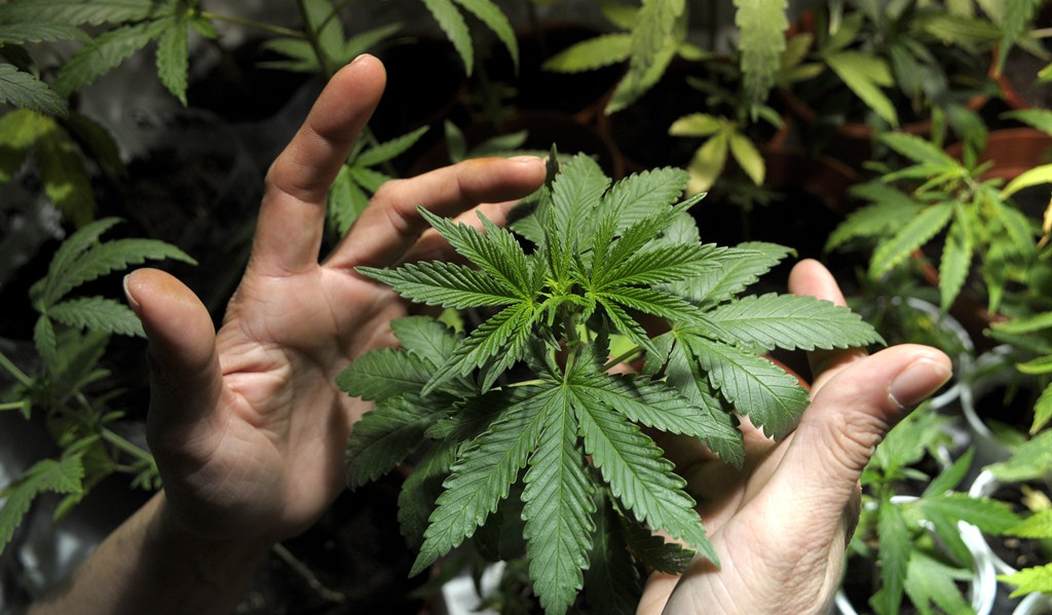President Obama says he opposes marijuana legalization but thinks Colorado and Washington should be able to try it. Texas Gov. Rick Perry, who sought to run against Obama in 2012 as a Republican presidential contender, takes the same position.
You might call this policy federalism -- but not if you are Barack Obama. According to the president, he has the authority to enforce the federal ban on marijuana even in states that have legalized the drug. But he chooses not to exercise that authority, because he is curious to see how these experiments turn out.
In an interview with The New Yorker published last week, Obama said that "it's important for (legalization) to go forward, because it's important for society not to have a situation in which a large portion of people have at one time or another broken the law and only a select few get punished." A few days later, White House Press Secretary Jay Carney emphasized that Obama is "not endorsing any specific move by a state" but is instead "talking about the issue of the disparities in our prosecution of our drug laws that an experiment like this may be addressing."
As the Justice Department made clear in an August 29 memo listing eight "enforcement priorities" it expects Colorado and Washington to address, the Obama administration reserves the right to end this experiment. If it does not like the way things are going, it can use threats of forfeiture and prosecution to shut down those states' newly legal marijuana businesses.
To Rick Perry, by contrast, federalism is not just a good idea; it's the law. "I am a staunch promoter of the 10th Amendment," he said at the World Economic Forum in Davos, Switzerland, last week. According to Perry, that amendment, which says the states retain those powers that are not granted to the federal government, means states should be free to set their own policies on matters such as abortion, gay marriage and marijuana, and "then people will decide where they want to live."
Recommended
That vision has been all but obliterated by the Supreme Court's absurdly broad interpretation of the power to regulate interstate commerce, which nowadays means the power to regulate pretty much anything, including the plants in your yard and the contents of your dresser drawers. This is the power Obama has in mind when he views his willingness to let Colorado and Washington set their own marijuana policies as an act of presidential grace rather than a constitutional obligation.
The truth is that the federal ban on marijuana -- unlike the federal ban on alcohol, which began and ended with constitutional amendments -- has no basis in the powers granted by the Constitution, at least insofar as it purports to reach purely intrastate activities. But as a politician who routinely relies on the Commerce Clause to justify his initiatives (including his signature legislative accomplishment), Obama will never admit that.
Still, if Obama truly believes "it's important" that states have the leeway to try different approaches to marijuana, why not codify that policy? The Respect State Marijuana Laws Act, introduced last spring by Rep. Dana Rohrabacher, R-Calif., would do just that by declaring that the provisions of the Controlled Substances Act dealing with cannabis "shall not apply to any person acting in compliance with state laws."
By supporting this bill, Obama could show he is serious about letting states go their own way on marijuana without abandoning his broad view of the federal government's powers. Republicans could appeal to younger voters -- two-thirds of whom support legalization, according to a 2013 Gallup poll -- while remaining faithful to a principle they claim to uphold.
Several recent surveys indicate that most Americans favor legalization, while even larger majorities say the federal government should not interfere with legalization at the state level. We seem to have the makings of a national consensus on this issue: We do not need a national consensus.

























Join the conversation as a VIP Member